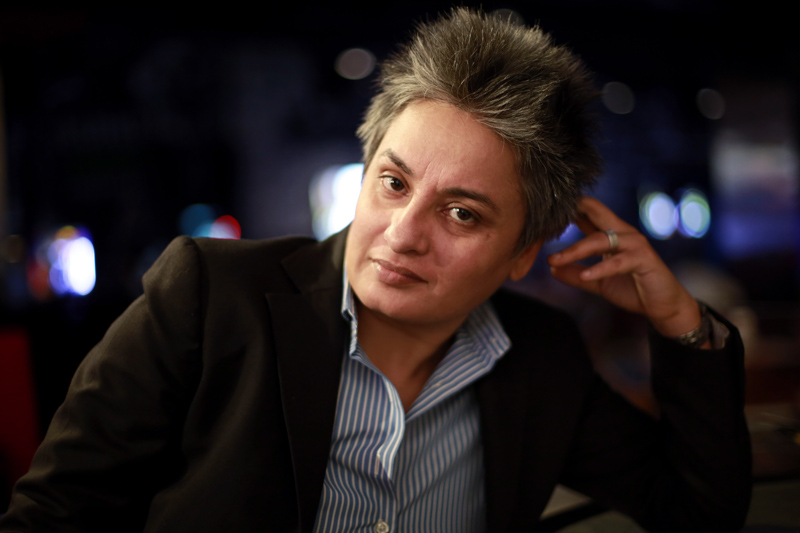
Priyanka Jamwal speaks to somatic healing therapist Vasu Primlani to understand how the body responds to trauma more than the mind.
What is trauma? Does it have to be a big event or do small ones also leave their mark on us?
Trauma is any type of distressing event or experience that has an impact on a person’s ability to cope and function. It includes but is not limited to terrible events like accidents, sexual assault, or natural disasters. In fact, any event a person finds physically or emotionally threatening or harmful can be referred to as trauma, such as childhood neglect, poverty, emotional abuse, sudden unexplained separation from a loved one, etc. Trauma is not so much about the event, but the individual’s response to the event.
Could you explain somatic experiencing?
This is a branch of healing trauma that has to do with having a greater understanding and greater control over your body and the body-mind connection. It lays greater emphasis on the body rather than the mind and is also referred to as a bottom-up approach.
How does the body speak? Does it speak more or louder than the mind?
Most people either have a non-relationship with their bodies or a dysfunctional relationship with them. So, when trauma happens, there is a disjunction that takes place – the mind goes in one direction and the body goes in another, and you no longer have control over your body. For instance, intellectually you might know one thing, but your body will go in another direction, and you won’t be able to understand why. It’s like having a relationship with a stranger, and when the stranger behaves in a certain way, you’re wondering “Why does the stranger behave this way?” Well, you didn’t communicate with them, you didn’t understand their rationale. If you did, you would understand why they were behaving like this and come to an understanding. But most people don’t understand because they don’t have a relationship with themselves, and that shows up in physical or psychological dysfunction.
How do you recognise the intelligence of the body versus that of the mind?
Suppose you are going through trauma and because you’re not aware of your body, you’re not aware of the impact the trauma is having on your body. For example, assume that you are in an abusive relationship and your partner is beating you up, belittling you, calling you names but because you’re not connected to your body, you’ll think, that this always happens, and it’s completely normal, and your body knows it’s not and keeps trying to tell you that. But you make no attempt to defend yourself because you have no idea that you’re supposed to be loved – you have never loved yourself in the first place and you’re not aware of the pain it’s causing you.
For most people, when trauma happens, the mind seems to tell them to stop overreacting, and that’s when the body runs away and does all sorts of things to get away from the situation. But there finally comes a time when the body pays for that trauma – all that pain that’s gone in, you will pay for it. The body is unable to think, unable to work, unable to get up and the mind asks, “What happened, why are you depressed?”
How is somatic experiencing different from other approaches?
Your mind could be saying many different things, but in my practice with my clients, we don’t listen to it – we listen to the body, and we validate the body. We let you see things from the perspective of your body. For a long time, your body’s been telling you, “This hurts, stop it”, “Don’t do it”, “This hurts me” and you haven’t been paying any attention to it. The first thing I tell my clients to say to their bodies is “I understand – yes, of course, you are going through pain!” and your body will respond because someone is finally listening to it!
Once a woman brought her sexually abused daughter to me said, “I don’t understand – I try and comfort my daughter, but she doesn’t let me.” I told her, “Please don’t touch her because she can’t take anyone’s touch right now. She can’t distinguish between good touch and bad touch. She’s like a little abused animal that’s afraid of everybody.” So, this child who didn’t want any touch of any kind came up and hugged me herself after the session because her body realized that somebody was listening. You see, your body is a larger mind than your mind itself and the body never lies.
It’s amazing how we’ve never been taught to listen to our bodies.
I know! It may be surprising, but we are often taught to not validate but live in denial of our bodies. For instance, as children when we feel sleepy and tired, we are told, “Shut up and finish your homework first.” Our parents very rarely say, “I understand you’re sleepy – would you like to take a 15 minute nap and then continue?” But we’re not taught this in our culture, or in any culture for that matter.
What is a typical somatic healing experience?
This is known as body work. So, the first thing one does is conduct an audit on your chest. The therapist touches eight points to see how traumatised you are on a subconscious level, and in my practice, I test for two things – the width and depth of the trauma. Depth here means how deeply traumatised you are on a scale of 0 to 10, where 0 is not at all and 10 is very painful or traumatised. Width is how much of your body is traumatised – is all of it traumatised or are there some pockets that are holding trauma residue? After the audit, the therapist goes centimetre by centimetre and gets it all out.
Which one would you say comes first in healing trauma – body work or cultivating self-love?
Body work and self-love can go hand-in-hand because most people who come for healing cannot function anymore. At that time, establishing self-love without removing their trauma first would be counterproductive. They won’t be able to hear, see or take instructions. Through body work, people have confessed to improved hearing, vision and overall bodily functions. Learning to love yourself is significant in setting boundaries so that the trauma doesn’t come back.

Vasu Primlani is one of the most recognized Indians in the United States today. A stand-up comedian, actor, professor, somatic therapist, triathlete and environmentalist, Vasu is a master of many disciplines. She has helped heal hundreds of people across the globe as a somatic therapist.






Leave a Reply